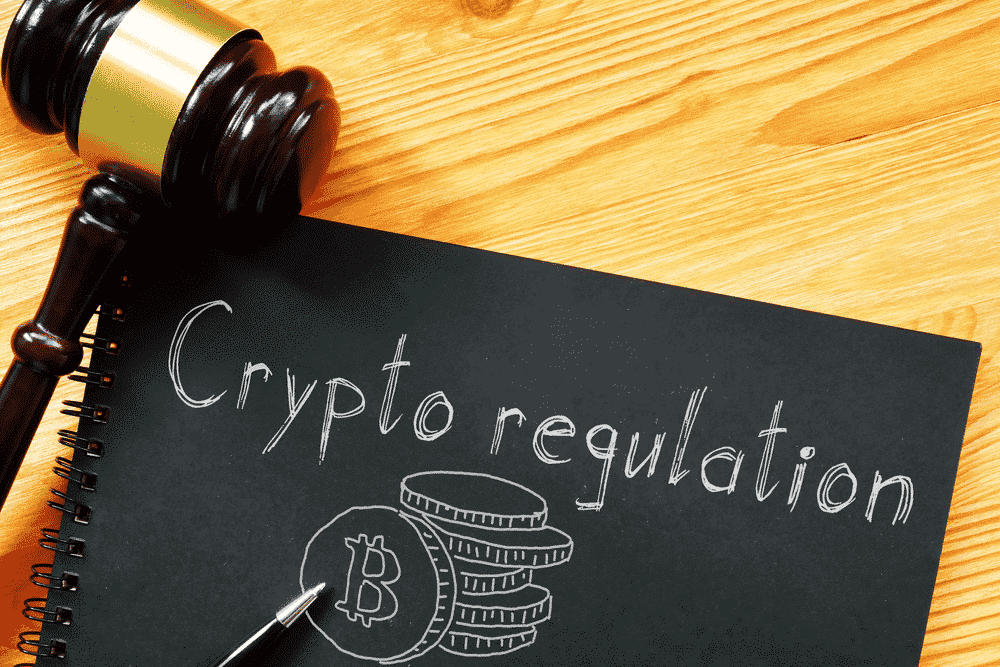Regulations and Custody Services for Crypto-asset Exchanges in Japan

“In 2020, the revised Payment Services Act rebranded “Virtual currency” as “Crypto-assets.” Now, Crypto Asset Exchange Operators, encompassing exchanges and trading platforms, must register similarly to financial institutions, bringing them under various regulatory purviews.
With the growing prevalence of crypto-assets, a range of wallet services has emerged to store and manage these assets, notably the “crypto-asset custody services”. But what regulations govern these custodians?
This article delves into the details of “crypto-asset custody services” and outlines the legal guidelines that Crypto Asset Exchange Operators, including custodians, need to follow.
Crypto-assets
What are crypto-assets?
Under Article 2, Paragraph 5 of the Payment Services Act, “crypto-assets” is defined as:
- A property value that satisfies the following conditions:
- It can be utilized as payment to any individual.
- It can be exchanged for legal tender with any individual.
- It possesses the capability for electronic recording and transfer.
- It is neither a fiat currency nor assets valued in fiat currency.
- The property, having a convertible economic value as mentioned, can be exchanged reciprocally with any party.
- This definition excludes the “Electronically Recorded Transferable Rights” as specified in Article 2, Paragraph 3 of the Financial Instruments and Exchange Act.
The term “Electronically Recorded Transferable Rights” refers to the rights associated with the transfer of electronic recordable securities. This encompasses security tokens issued via blockchain technology, which includes digitized tokens like the trust beneficiary rights and collective investment schemes.
Crypto-assets have a dual function: they act as both a medium of exchange and an investment vehicle. In Japan, the Payment Services Act governs the use of crypto assets for settlement, while the Financial Instruments and Exchange Act oversees their use as investment instruments.
What is crypto-asset custody services?

In the realm of finance and securities, the term ‘custody’ pertains to the management of valuable securities. When it comes to crypto-assets, custody services denote the professional management of these assets on behalf of clients. This service extends to offering systems, commonly known as ‘wallets’, which allow users to oversee their crypto-assets.
The 2020 amendment to the Payment Services Act incorporated these custody services into the broader category of ‘Crypto Asset Exchange Operators’. As per this Act, they are characterized by the following activities (as outlined in Article 2, Paragraph 7 of the Payment Services Act):
- The purchase and sale of crypto-assets or their exchange with other crypto-assets.
- Serving as an intermediary, broker, or representative for the transactions mentioned in the point 1.
- Overseeing users’ funds related to the point 1 and 2.
- Professionally managing crypto-assets for clients, which is synonymous with custody services.
Consequently, entities offering custody services are now mandated to register as Crypto Asset Exchange Operators, bringing them under a comprehensive regulatory framework.
Three Regulations for Crypto Asset Exchange Operators

Custody providers that exclusively handle crypto-assets must register and adhere to specific regulations, as they are categorized as “Crypto Asset Exchange Operators” under Japan’s Payment Services Act. This article offers a comprehensive overview of the rules governing these businesses.
Regulations on Advertising and Solicitation by Crypto Asset Exchange Operators
Crypto Asset Exchange Operators, when promoting their services, must adhere to Article 63-9-2 of the Fund Settlement Act and Article 18 of the Cabinet Office Ordinance on Crypto Asset Exchange Operators. They are required to display:
- Name of the Crypto Asset Exchange Operator, statement indicating they are Crypto Asset Exchange Operator, and their registration number
- Crypto-assets are not considered Japanese Yen or foreign currency
- If there’s a potential for loss directly due to fluctuations in the value of crypto-assets, this risk and its reasons should be clearly stated
- Crypto-assets can only be used for payment if the recipient agrees to the transaction
When promoting or finalizing a crypto-asset exchange agreement, Article 63-9-3 of the Payment Services Act prohibits the following:
- Providing misleading information or making false claims about the nature of crypto-assets.
- Encouraging the trade or exchange of crypto-assets predominantly for profit, rather than for transactional purposes
- Adopting practices that don’t safeguard crypto-asset exchange users or that could compromise the integrity and stability of the Crypto Asset Exchange Operators. (Note: These sentences are a translation of Japanese law. We cannot guarantee the accuracy of the meaning or content.)
Measures for the Protection of Users
Under Article 63-10 of the Fund Settlement Act, Crypto Asset Exchange Operators are obligated to clearly communicate the characteristics of crypto-assets and their contractual terms to safeguard users. Additionally, they must implement necessary measures to ensure the secure and effective execution of operations while prioritizing user protection.
Obligation to Preserve User Property
Crypto Asset Exchange Operators have a primary responsibility to safeguard user assets, especially in situations like the outflow of a user’s crypto-assets or in the event of the operator’s bankruptcy.
“Entrustment of User Monies”
As per Article 63-11, Paragraph 1 of the Payment Services Act, Crypto Asset Exchange Operators must distinctly manage user-deposited funds from their own and are obligated to place them with a trust company or a similar entity.
Distinct Management of User’s Crypto Assets
Crypto Asset Exchange Operators are mandated to manage crypto-assets entrusted by users separately from their own assets. Furthermore, these user crypto-assets must be managed using highly secure methods as defined by the Cabinet Office Ordinance (Article 63-11, Paragraph 2 of the Payment Services Act).
Specifically, information essential for transferring user crypto-assets (private keys) must be stored and managed on electronic devices not constantly connected to the internet (cold wallets) or through other equivalent technical security measures.
However, for user convenience, managing up to 5% of the total user crypto-assets (in Japanese yen equivalent) using methods other than the highly secure ones, such as hot wallets, is also permitted (management by hot wallets, etc).
Retention of Performance-Guaranteed Crypto-Assets
As previously highlighted, Crypto Asset Exchange Operators have the allowance to oversee a segment of the crypto-assets they hold on behalf of users using methods beyond just the “highly secure” approaches, such as cold wallets. Yet, there’s an inherent risk: should these assets face a breach, operators may struggle to meet their commitment to reimburse users.
To address this, operators are obligated to maintain a reserve of crypto-assets termed “Performance-Guaranteed Crypto-Assets”—of the same type and quantity as their proprietary holdings, distinct from those they manage for users. This provision ensures that users can be compensated in the event of any setbacks, in line with Article 63-11-2 of the Payment Services Act.
Priority Claim Rights for Entrusted Cryptographic Assets and Performance-Guaranteed Crypto-Assets
Users can seek the return of their crypto-assets held by Crypto Asset Exchange Operators. When it comes to the specifically managed assets, including both entrusted and Performance-Guaranteed Crypto-Assets, users have a preferential right to compensation ahead of other creditors, as specified in Article 63-11-2 of the Payment Services Act.
Other Regulations for Crypto Asset Exchange Operators
Apart from the stipulations of the Payment Services Act, Crypto Asset Exchange Operators are also mandated by the Act on Prevention of Transfer of Criminal Proceeds to implement measures against money laundering and related illicit activities. These responsibilities encompass:
- Conducting thorough user identity verification and retaining such records
- Establishing and maintaining comprehensive transaction logs
- Promptly notifying the Financial Services Agency of any transactions that raise suspicions
Is it possible to avoid registering as Crypto Asset Exchange Operators?
In addition to the various regulations imposed on crypto-asset exchanges, to be registered as a crypto-asset exchange, there are financial prerequisites. For instance, they must have a capital of at least 10 million yen and their net assets should not be negative. This ensures that they have a robust framework to conduct their operations reliably and appropriately.
For entities that solely provide custody services, without operating as crypto-asset trading or exchange platforms, these regulations can be quite burdensome. It wouldn’t be an exaggeration to say that they pose significant barriers to new entrants in the market.
However, it’s also possible to handle users’ crypto-assets in a manner that doesn’t necessitate registration as a crypto-asset exchange.
In the Financial Services Agency’s public comments, the criteria for “managing-crypto assets on behalf of others,” which falls under the scope of crypto-asset exchange operations, is described as follows:
Decisions should ideally be tailored to specific situations. If a business entity holds only a part of the private keys required to move a user’s crypto-assets and can’t execute those transfers with the keys they have, it’s generally understood that they aren’t equipped to independently handle such transfers. As a result, they typically wouldn’t be classified as “managing crypto-assets on behalf of others,” as outlined in Article 2, Paragraph 7, Item 4 of the Payment Services Act.
“Results of Public Comments on Japanese Cabinet Ordinances and Cabinet Office Ordinance Drafts Concerning Revisions to Japan’s Payment Services Act in 2019” (Attachment 1) No.10-12
Simply put, a business that can’t transfer a user’s crypto-assets with the private keys they have isn’t categorized as Crypto Asset Exchange Operators. Moreover, even if a business has all the private keys required for such a transfer, if these keys are encrypted and the business lacks the means to decrypt them, it isn’t viewed as “managing crypto-assets for others.”
Crafting a business model outside the scope of crypto-asset exchange allows one to sidestep the registration requirements typical of Crypto Asset Exchange Operators.
Summary:Crypto-Asset Custody Services
Custody providers, especially those offering crypto-asset wallet services, are typically categorized as crypto-asset exchanges, making them subject to a range of regulations. This encompasses registration mandates, advertising standards, and user protection protocols. Yet, if a provider cannot transfer a user’s crypto-assets using only their private keys, they are not deemed a crypto-asset exchange, thus freeing them from these stipulations.
Decisions can differ based on specific scenarios. However, by strategically shaping your business model, you can potentially sidestep certain registration and regulatory hurdles. If you’re uncertain about your custody service’s classification or the need for crypto-asset exchange registration, seeking advice from a crypto-savvy attorney is recommended.
Introduction of Countermeasures by Our Firm
Our firm excels in offering legal services tailored to the crypto-asset sector. This includes auditing for businesses operating crypto-asset exchanges, delivering informed legal counsel, crafting ICO whitepapers, and performing comprehensive legal assessments to guarantee compliance.
Category: IT





















